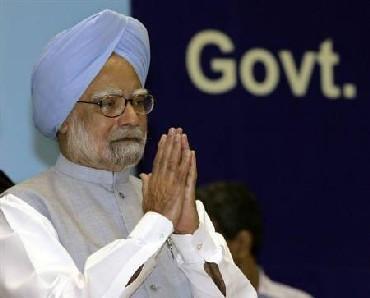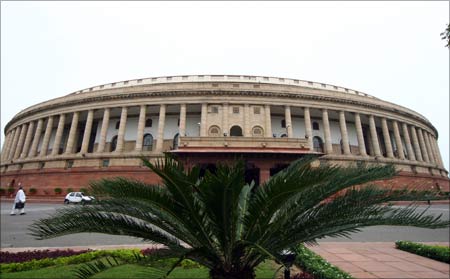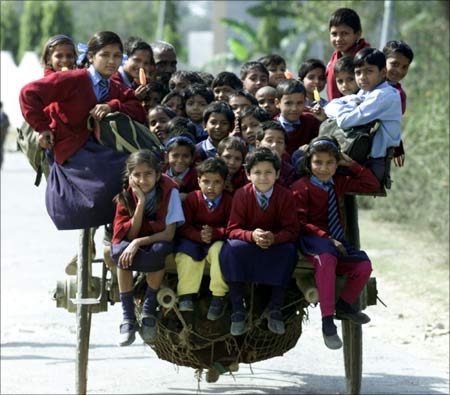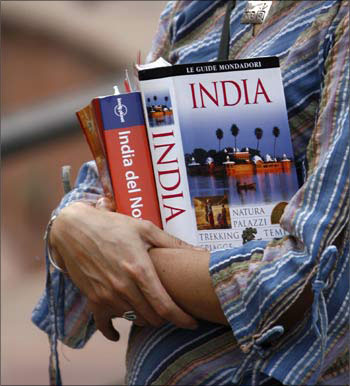 | « Back to article | Print this article |
How PM promises to usher in a season of change
Speaking at the annual Business Standard Awards function last Friday, Prime Minister Manmohan Singh ended on a reassuring and hopeful note when he said, "Let me assure you that I do have my finger on the pulse of India today. I sense a mood for renewal, as I did 20 years ago.
"We did not disappoint India in the summer of 1991. We will grasp the nettle once again, in the summer of 2011."
Dr Singh was referring to the economic reforms of 1991, whose 20th anniversary was celebrated at the function with a panel discussion involving some of the key players, like P Chidambaram, C Rangarajan, Montek Singh Ahluwalia and Shankar Acharya.
Click NEXT to read further. . .
How Manmohan Singh promises to usher in a season of change
Why does the PM hope he can do more in the summer of 2011 than he has been able to till now?
At least one reason would be the boost to Congress Party and United Progressive Alliance morale from the widely forecast historic defeat of the Left Front in West Bengal, after 30 years of uninterrupted rule.
Signs of policy activism on the part of the government were noticed when Union finance minister Pranab Mukherjee tabled a variety of economic legislation in Parliament and made a firm commitment to go ahead with the unveiling of a goods and services tax.
The prime minister added his voice to that pledge.
Hopefully, a revitalised ruling coalition will focus on both governance reform and more economic liberalisation.
Click NEXT to read further. . .
How Manmohan Singh promises to usher in a season of change
India still lags behind countries like China and Brazil on indices for doing business, and governance reform is key.
For the PM to be able to deliver on his promise, however, he will need to effect the promised Cabinet reshuffle, placing some energetic and efficient persons in key ministries, sacking a few more of the laggards and obstructionists and getting himself a more effective office.
That the PM means business was partly evident from the fact that minutes before he spoke at the function, he signed two letters to the president and prime minister of Pakistan, inviting them to join him in watching the Mohali world cup cricket match this week.
Click NEXT to read further. . .
How Manmohan Singh promises to usher in a season of change
It was an entirely prime ministerial initiative, on the contentious issue of relations with a difficult neighbour.
The fact that Dr Singh has chosen to bite the bullet, so to speak, suggests that he is willing to once again assert himself on policy issues.
This he must.
At his meeting with the leaders of Brazil, Russia, India, China and South Africa next month, he has the opportunity to work for a more stable global, economic and political order that India needs to sustain its growth process.
While the prime minister's key and senior colleagues like Pranab Mukherjee, P Chidambaram and Kapil Sibal have been active on a variety of fronts, it is his leadership, at home and abroad, that will have to re-energise the government once assembly elections are over. Dr Singh's promise of action must be followed up by credible action.




